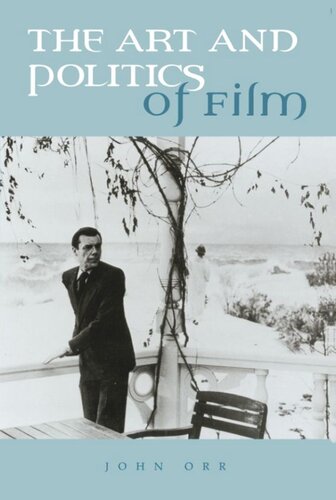

Most ebook files are in PDF format, so you can easily read them using various software such as Foxit Reader or directly on the Google Chrome browser.
Some ebook files are released by publishers in other formats such as .awz, .mobi, .epub, .fb2, etc. You may need to install specific software to read these formats on mobile/PC, such as Calibre.
Please read the tutorial at this link: https://ebookbell.com/faq
We offer FREE conversion to the popular formats you request; however, this may take some time. Therefore, right after payment, please email us, and we will try to provide the service as quickly as possible.
For some exceptional file formats or broken links (if any), please refrain from opening any disputes. Instead, email us first, and we will try to assist within a maximum of 6 hours.
EbookBell Team

4.8
84 reviewsGBS_insertPreviewButtonPopup('ISBN:9780748611997);
The Art and Politics of Film is the final part of a critical trilogy that explores cinema in the latter half of the twentieth century. It fuses analysis of objective form in Cinema and Modernity with a subsequent critique of subjective form in Contemporary Cinema, and reassesses the close ties of the aesthetic and the political right up to the present time.
Film not only engages the question of power. Its narratives also dissect the conflicts between public and personal identity in a changing world. Different filmmakers take on different dimensions of this universal theme. The book examines the cinematic city in Kieslowski and Cronenberg; the cinema of wonder in Tarkovsky and Angelopoulos; the hyper-modern world of science fiction and horror; the time-image in Resnais, Rivette, Lynch and Stone; and the art of identity in Jarman and Jordan. At the turn of the century, film is seen as a component of a hyper-modern culture, which has displaced the modernist aesthetic of the 1960s, and now plays a key role in our mapping of the information age.
Key Features